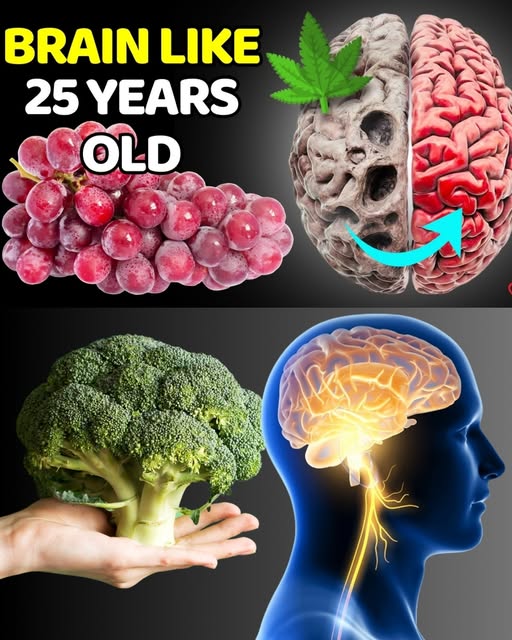Introduction: Conquer Acid Reflux Naturally – Starting Today

If you’ve ever felt that burning sensation in your chest after a hearty meal, you’re not alone. Over 60 million Americans experience acid reflux at least once a month, and about 15 million suffer from it daily. Acid reflux, also known as gastroesophageal reflux disease (GERD) when chronic, can seriously interfere with your quality of life — from sleep disruption to lost productivity.
The good news? Relief could be as simple as changing what’s on your plate.
In this comprehensive guide, we’ll explore 15 powerful foods that relieve acid reflux fast, backed by nutrition science and proven results. You’ll discover how to create the ultimate anti-acidity diet, avoid common dietary triggers, and find lasting relief — all without the long-term risks of popping antacids.
Let’s dive in.
What Causes Acid Reflux? A Quick Overview
Before jumping into the best foods, it’s important to understand what’s going on inside your body. Acid reflux occurs when stomach acid flows back up into your esophagus, causing irritation and the signature burn known as heartburn. Common causes include:
- Eating large or fatty meals
- Drinking caffeine, alcohol, or carbonated beverages
- Smoking
- Being overweight
- Pregnancy
- Certain medications
But diet plays one of the biggest roles — and it can be your first line of defense.
15 Powerful Foods That Relieve Acid Reflux Fast
These anti-acidic superfoods don’t just soothe your symptoms — they help repair the gut, protect the esophagus, and balance stomach acid naturally.
1. Oatmeal – The Ultimate Morning Soother
Oatmeal is high in fiber, low in fat, and gentle on the stomach. It absorbs acid and helps reduce reflux symptoms throughout the day. Choose unsweetened, unprocessed oats for best results.
Bonus tip: Add a sliced banana (coming up next) for a double-dose of anti-reflux power.
2. Bananas – Nature’s Antacid
Bananas are low in acid and rich in pectin, a soluble fiber that keeps food moving smoothly through your digestive tract. Their alkaline nature neutralizes stomach acid.
🍌 Did You Know? Bananas have a natural pH of about 5.6 — ideal for fighting excess acidity.
3. Ginger – The Ancient Digestive Healer
Used for centuries in Ayurvedic medicine, ginger has anti-inflammatory properties that calm the stomach and esophagus. It also helps prevent nausea, making it perfect for reflux relief.
Tip: Brew fresh ginger tea or add grated ginger to soups and stir-fries.
4. Aloe Vera Juice – Cooling Relief in a Glass
Aloe vera juice is soothing to the digestive system and helps reduce inflammation in the esophagus. Just make sure it’s purified and decolorized (not the laxative variety).
5. Green Vegetables – Your Alkaline Army
Leafy greens like spinach, kale, broccoli, and asparagus are naturally alkaline, low in fat, and packed with nutrients. They help reduce acid production and soothe digestive inflammation.
🥦 Green Tip: Steam your veggies to retain nutrients and make digestion easier.
6. Melons – Sweet & Soothing
Watermelon, cantaloupe, and honeydew are low-acid fruits that hydrate and cool the digestive tract. They also contain antioxidants that support gut health.
7. Fennel – Crunchy & Calming
Fennel has natural stomach-settling properties. It can relax the GI tract and reduce bloating and gas. Enjoy it raw in salads or lightly roasted as a side dish.
8. Chamomile Tea – Gentle Night-Time Comfort
Chamomile reduces acid reflux and stress-induced symptoms. It’s also a natural sleep aid — important since lying down can worsen reflux.
9. Lean Poultry – Protein Without the Burn
Skinless chicken and turkey are acid-reflux-safe protein sources. They’re low in fat and won’t over-stimulate acid production like red meat.
Pro tip: Bake or grill instead of frying.
10. Fish – Omega-3s with Benefits
Baked or steamed fish like salmon and trout are great for reducing inflammation in the digestive tract. Plus, omega-3s help balance stomach acid levels.
11. Brown Rice – Gentle Whole Grain
Brown rice is high in fiber and complex carbs that move smoothly through your system. It can also absorb excess stomach acid, reducing discomfort.
12. Licorice Root – Natural Mucosal Protector
Licorice root increases the mucus coating in your stomach and esophagus, helping protect against acid irritation. Choose DGL (deglycyrrhizinated licorice) supplements for safety.
13. Apple Cider Vinegar (ACV) – Surprising Solution
While acidic itself, ACV can aid digestion and regulate stomach pH when used in moderation. Dilute 1 tablespoon in water before meals.
⚠️ Not for everyone: ACV may worsen symptoms in some people. Always test cautiously.
14. Yogurt – Probiotic Powerhouse
Low-fat yogurt contains probiotics that balance gut flora and support digestion. It also soothes the stomach lining.
Avoid: High-fat or flavored yogurts which may trigger symptoms.
15. Papaya – The Enzyme Booster
Papaya is rich in papain, a natural enzyme that helps break down proteins and ease digestion. It’s mildly sweet, low-acid, and gut-friendly.
FAQs About Acid Reflux & Diet
Q1: What foods should I avoid to reduce acid reflux?
Avoid:
- Citrus fruits (oranges, lemons)
- Tomatoes and tomato-based sauces
- Spicy foods
- Chocolate
- Fried or fatty meals
- Carbonated beverages
- Coffee and alcohol
Q2: Can I cure acid reflux with diet alone?
While mild to moderate cases of acid reflux can be managed effectively with dietary changes, chronic GERD may require a combination of diet, lifestyle changes, and medical supervision. Always consult a healthcare provider for persistent symptoms.
Q3: How fast can food relieve acid reflux symptoms?
Some foods can provide immediate soothing effects (e.g., bananas, oatmeal, aloe vera), while others work gradually by reducing inflammation and restoring gut balance. You may start feeling noticeable relief within a few days to a week with consistent dietary changes.
Q4: Can drinking water help with acid reflux?
Yes. Water can dilute stomach acid and flush it back down into the stomach, providing temporary relief. Alkaline water (pH above 8) may offer even more benefits.
Q5: Is fasting good or bad for acid reflux?
Prolonged fasting may increase acid buildup and worsen symptoms. Instead, eat smaller, frequent meals throughout the day to avoid overwhelming your stomach.
Pro Tips for Long-Term Reflux Relief
- Eat smaller meals: Large portions stretch the stomach and trigger reflux.
- Don’t lie down after eating: Wait at least 2–3 hours before bedtime.
- Elevate your head while sleeping: Gravity helps keep acid down.
- Avoid tight clothing around the waist.
- Stay active and maintain a healthy weight.
- Track your triggers: Everyone is different — keep a food diary.
Conclusion: Reclaim Your Digestive Health One Bite at a Time
Acid reflux doesn’t have to control your life. With the right dietary adjustments, you can start healing from the inside out. These 15 powerful foods provide a natural, sustainable way to soothe your symptoms, protect your gut, and avoid long-term medication dependency.
Remember, consistency is key. Listen to your body, personalize your food choices, and build habits that support lasting gut health.
👉 Start today — swap that greasy breakfast for oatmeal and banana, sip on ginger tea after meals, and stock your kitchen with reflux-friendly staples.
Because relief isn’t just possible — it’s on your plate.


